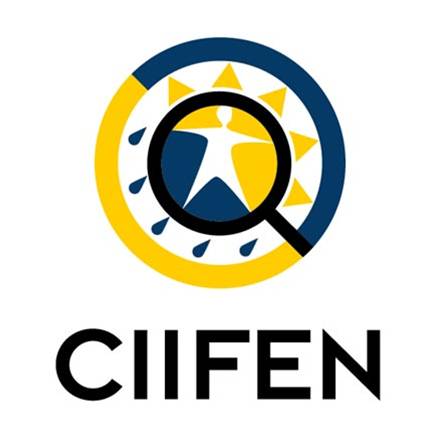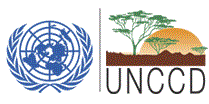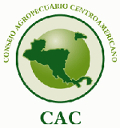 | UN-SPIDER programme of the United Nations Office for Outer Space Affairs
The UN-SPIDER programme of the United Nations Office for Outer Space Affairs (UNOOSA) was established by the United Nations General Assembly in December 2006 as a programme within the United Nations to provide universal access to all countries and all relevant international and regional organizations to all types of space-based information and services relevant to disaster risk management to support the full disaster management cycle. The UN-SPIDER Bonn Office provides Technical Advisory Support to Latin America and the Caribbean and has been dedicating efforts to support countries affected by droughts. In the context of the SEWS-D project, UN-SPIDER has mobilized a network of partners as a way to promote the use of a variety of space-based information to be used in drought early warning systems. |
 | FAO’s Sub Regional Office for Mesoamerica based in Panama
The Food and Agriculture Organization of the United Nations is an intergovernmental organization, with 194 Member States, two associate members and one member organization, the European Union. Its mandate is to support members in their efforts to ensure that people have regular access to enough high-quality food. The FAO Subregional Office for Mesoamerica (SLM) has been located in Panama City since 2007. Recognizing that the solution to the problem of hunger is primarily one of political will, the SLM presence serves to facilitate the coordination of the Organization’s work with various regional institutions and with Governments. Taking note of the effects of droughts on crops, FAO has developed the Agricultural Stress Index System (ASIS) to help countries monitor agricultural drought and manage its risks, using satellite data to detect cropped land that could be affected by drought. The SEWDS-D project is promoting the implementation and use of the country version of ASIS that FAO will launch in 2016. |
 | International Centre for Research on El Niño Phenomenon
The International Centre for Research on El Niño Phenomenon (CIIFEN) has been established by the General Assembly of the United Nations at the recommendation of the United Nations Office for Disaster Risk Reduction (UNISDR) in the year 2003. CIIFEN has been established to strengthen its links, as appropriate, with national meteorological and hydrologic services of the Latin American region, the Permanent Commission for the South Pacific, the Inter American Institute for Global Change Research and the International Research Institute for Climate Prediction, as well as with other relevant regional and global organizations that study climate, such as the European Centre for Medium-Range Weather Forecasts, the African Centre of Meteorological Applications for Development, the Drought Monitoring Centre and the Asia-Pacific Network for Global Change Research, and other relevant centres as appropriate, in order to ensure the effective and efficient use of the available resources. The mission of CIIFEN is to promote and develop actions to consolidate science-policy interaction and the strengthening of climate and ocean services aiming to contribute on risk management and adaptation to better cope climate change and climate variability. The participation of CIIFEN in the context of the SEWS-D project is essential, as El Nino phenomena often trigger droughts in Central America and other regions of the world. |
 | United Nations Convention to Combat Desertification
Desertification, along with climate change and the loss of biodiversity, were identified as the greatest challenges to sustainable development during the 1992 Rio Earth Summit. Established in 1994, UNCCD is the sole legally binding international agreement linking environment and development to sustainable land management. The Convention addresses specifically the arid, semi-arid and dry sub-humid areas, known as the drylands, where some of the most vulnerable ecosystems and peoples can be found. In the 10-Year Strategy of the UNCCD (2008-2018) that was adopted in 2007, Parties to the Convention further specified their goals: "to forge a global partnership to reverse and prevent desertification/land degradation and to mitigate the effects of drought in affected areas in order to support poverty reduction and environmental sustainability". UNCCD is promoting the implementation of national drought policies as a way for countries to cope with droughts, and within these policies drought early warning systems. |
 | Regional Centre for Space Science and Technology Education for Latin America and the Caribbean
The Regional Centre for Space Science and Technology Education for Latin America and the Caribbean, affiliated to the United Nations (CRECTEALC) was established on 19 March 1997, based on the recommendations of the Second United Nations Conference on the Exploration and Peaceful Uses of Outer Space (UNISPACE 82), by signing of an Agreement between the Governments of Brazil and Mexico. The two countries act as the main coordinators and alternate headquarters. The Centre has as its mission the establishment of programmes on education, research and development of applications, with initial emphasis in the areas of remote sensing, satellite meteorology, satellite communications and space and atmospheric science to benefit the countries in the region of Latin America and the Caribbean. In the context of the SEWS-D project, CRECTEALC contributes to research and training activities. |
 | Central American Agricultural Council
The Central American Agriculture Council (CAC in its Spanish acronym) is a body of the Central American Integration System (SICA) and consists of the Ministries of Agriculture of Belize, Costa Rica, El Salvador, Guatemala, Honduras, Nicaragua, Panama and The Dominican Republic. Since the Tenth Summit of the Presidents of this region, which was celebrated in El Salvador in July 1991, the CAC is recognised as the institutional mechanism promoting the connection of the agricultural sector with other authorities of the Central American integration. |
 | Central American Coordination Centre for Natural Disaster Prevention
The Central American Coordination Centre for Natural Disaster Prevention (CEPREDENAC in its Spanish acronym) of the Central American Integration System is a regional intergovernmental body belonging to the Central American Integration System (SICA) as a specialized secretary. It was created by national legislations in the Central American countries with the mandate to promote activities, projects and programs which drive the risk reduction of disasters which lead to human and economic losses through socio-natural factors. The Centre promotes and coordinates the international cooperation and interchange of information, experience and technical as well as scientific advice regarding the prevention, mitigation and response of disasters. Furthermore it systemizes and registers information related to the prevention, mitigation, response, impact and recovery of disasters in dynamic, interactive and accessible form. |
 | Agustin Codazzi Geographic Institute
The Instituto Geográfico Agustín Codazzi, IGAC, is the entity responsible for producing the official map and the basic cartography of Colombia; developing the national property register; creating the soil characteristics inventory; advancing geographic investigations in support of territorial development; training and educating professionals in geographic information technologies, and coordinating the “Colombian Spatial Data Infrastructure” or ICDE. IGAC became one of UN/SPIDER’s Regional Support Offices in 2010 and has contributed in a variety of ways to the SEWS-D project. In 2015, IGAC and UN-SPIDER conducted a Regional Expert Meeting dedicated to the SEWS-D project and the meeting included a training session on Recommended Practices developed by IGAC and by UN-SPIDER targeting droughts. |
 | Mexican Space Agency
The Mexican Space Agency (AEM) is the national space agency of Mexico, established in July 2010. The agency aims to promote and coordinate education, research and development of the space-related activities that are performed in the country. Taking into consideration the severe droughts that have affected different regions of Mexico, AEM is undertaking a systematic review of ways in which space-based information has been used in Mexico to deal with the effects of recent droughts. |
 | Federal University of Santa Maria
The Federal University of Santa Maria is a governmental, regionally oriented university which aims to perform teaching, research and extension activities. UFSM sees it as its mission to generate and cultivate science and technology in the interest of regional development and the transmission of universal knowledge. In recent years researchers from UFSM have devoted efforts to develop methods to track the effects of droughts in Brazil, in particular through the use of the Enhanced Vegetation Index. Researchers from UFMS have contributed to develop a specific Recommended Practice to promote the use of the Standard Vegetation Index (SVI) as a source of information to be used in drought early warning systems. These researchers have developed a series of maps for Central America and the Dominican Republic regarding the SVI and have contributed to training efforts in Bogota, Colombia during the 2015 Expert Meeting. |







